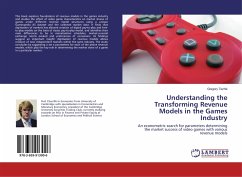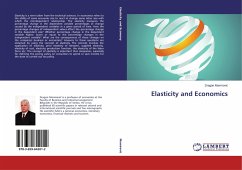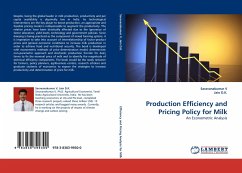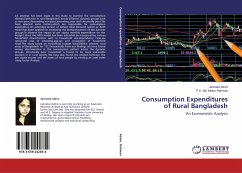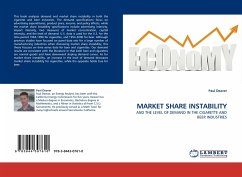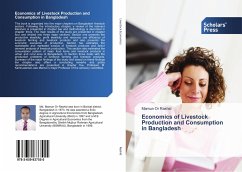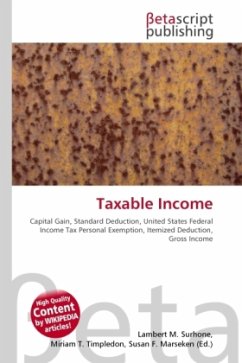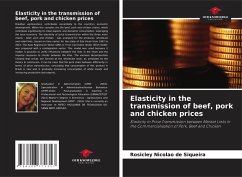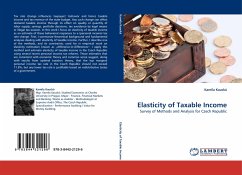
Elasticity of Taxable Income
Survey of Methods and Analysis for Czech Republic
Versandkostenfrei!
Versandfertig in 6-10 Tagen
32,99 €
inkl. MwSt.

PAYBACK Punkte
16 °P sammeln!
Tax rate change influences taxpayers' behavior and hence taxable income and tax revenue of the state budget. Any such change can affect declared taxable income through its effect on quality or quantity of labor supply, savings, portfolio decisions, tax avoidance by legal means or illegal tax evasion. In this work I focus on elasticity of taxable income as an estimate of these behavioral responses to a (personal income) tax rate change. First, I summarize theoretical background and fundamental analyses dealing with elasticity of taxable income. Further, I describe one of the methods, and its co...
Tax rate change influences taxpayers' behavior and hence taxable income and tax revenue of the state budget. Any such change can affect declared taxable income through its effect on quality or quantity of labor supply, savings, portfolio decisions, tax avoidance by legal means or illegal tax evasion. In this work I focus on elasticity of taxable income as an estimate of these behavioral responses to a (personal income) tax rate change. First, I summarize theoretical background and fundamental analyses dealing with elasticity of taxable income. Further, I describe one of the methods, and its constraints, used for in empirical work on elasticity estimation known as "difference-in-differences". I apply this method and estimate elasticity of taxable income in the Czech Republic using several recent personal income tax reforms. Those estimates that are consistent with economic theory and common sense suggest, along with results from optimal taxation theory, that the top marginal personal income tax rate in the Czech Republic should not exceed 71.8%, but any lower tax rate is justifiable based on redistributive tastes of a government.



